Kerala Uses 9,700 Tonnes of Plastic Waste to Pave 246 Km of Roads, Help Local Women
Imagine that the plastic straw you used for a few minutes to sip a drink will lie on this planet for a thousand years!

Plastics have become an unavoidable part of our lives. Try as you might, you can’t get away from it fully. According to reports, humans around the globe buy a million plastic bottles per minute, and 91% of all plastic is not recycled.
India’s annual plastic consumption is expected to cross 20 million tonnes in 2020. The main issue with plastics is they break down into microscopic particles and seep into our soil and water bodies. Imagine that the plastic straw you used for a few minutes to sip a drink will lie on this planet for a thousand years!
Given the sheer scale of consumption, the earth is running out of space to accommodate this growing mound of plastic waste.
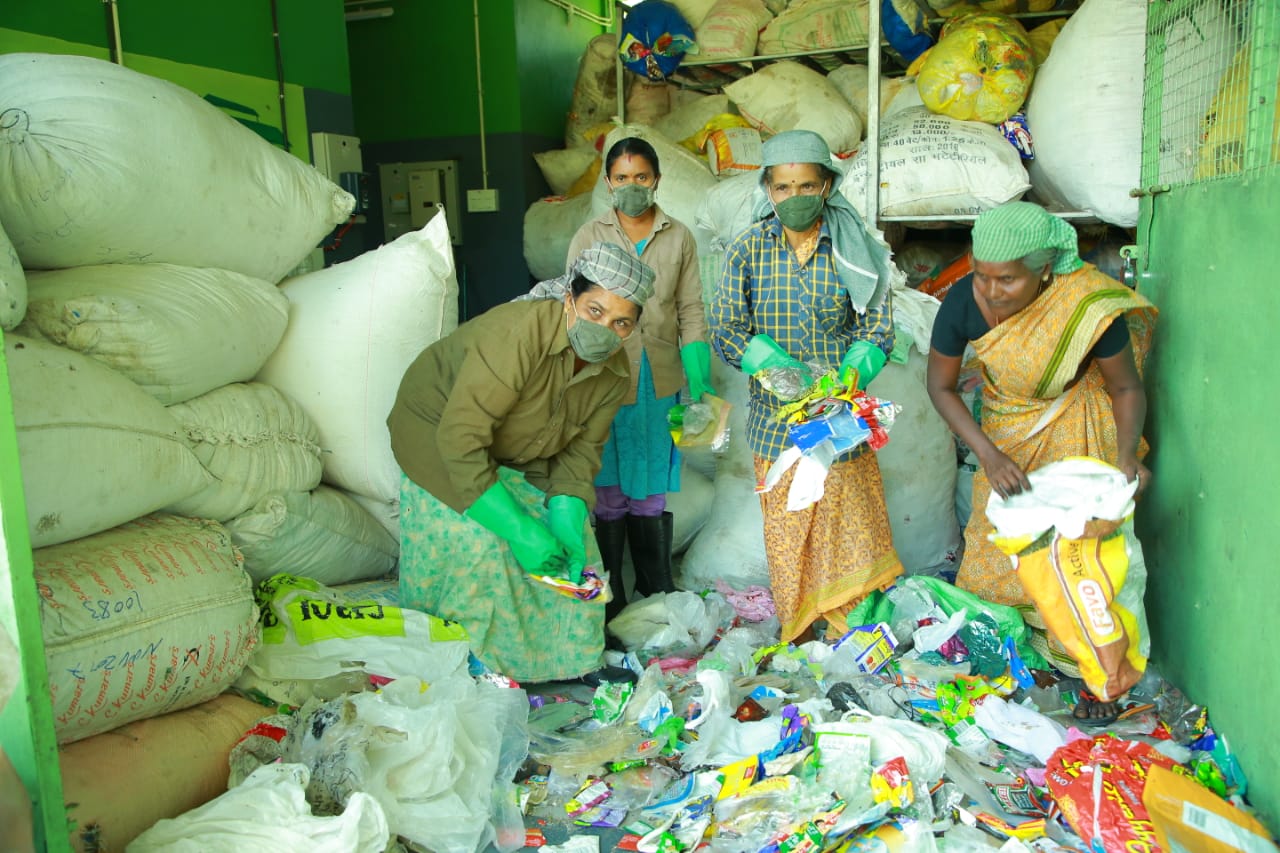
In India, many states are coming up with innovative methods of combating this menace.
Eraviperoor Panchayat in Kerala, for instance, has implemented a plastic recycling project which makes use of non-recyclable plastic for laying roads.
The Better India caught up with Renjith Abraham, who is associated with Suchitwa Mission, a local self-government department of the Kerala government, ensuring that non-recyclable plastic is put to good use.
An idea is born
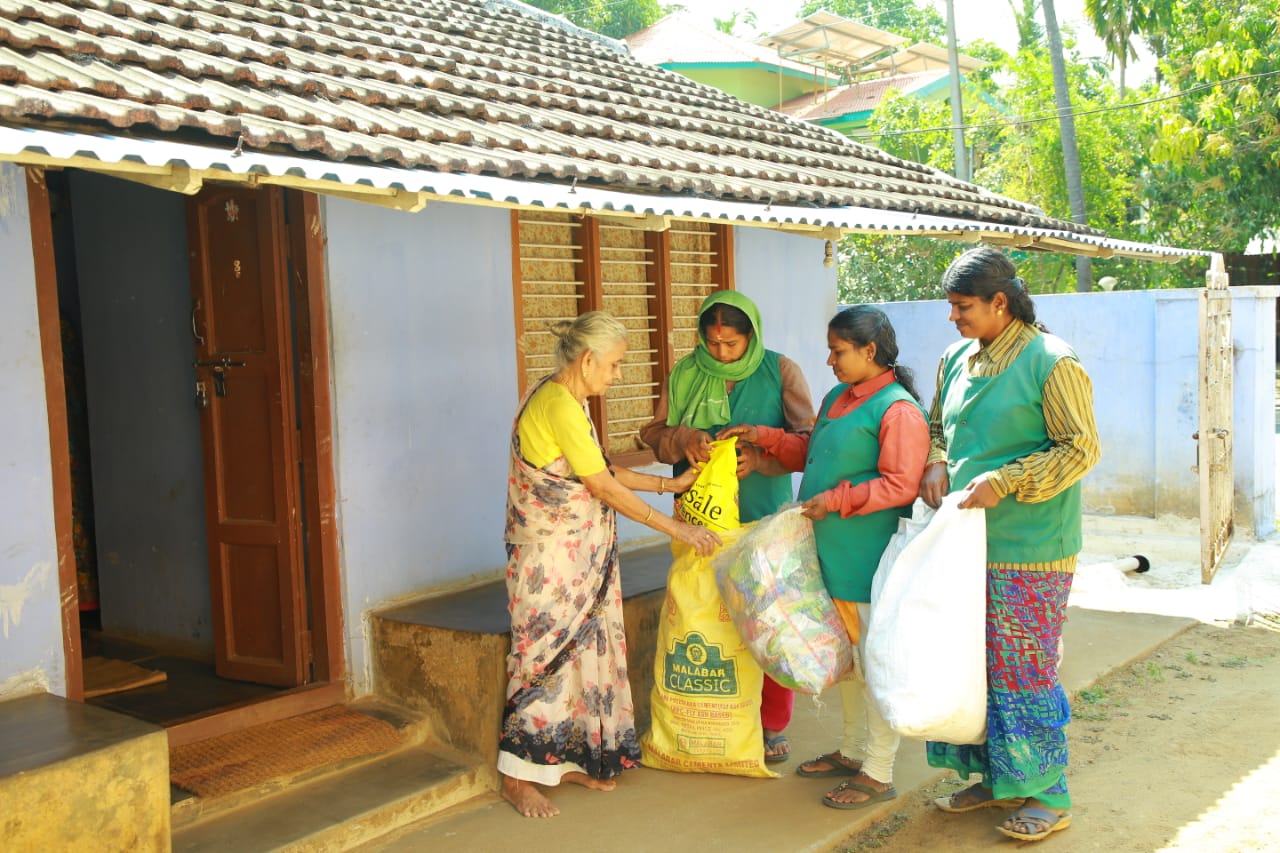
In 2012, Rajagiri College, Ernakulam, had experimented with polymerised roads by using waste plastics for blacktopping 500 metres of campus road.
This news soon spread and inspired the former president of the Grama Panchayat who was looking for ways to manage plastic waste. The Panchayat Council approached the Public Works Department (PWD) for technicalities. When their idea was approved, they started using shredded plastics along with bitumen for tarring roads, says Renjith.
Kudumbashree is a self-help initiative by the Kerala movement. Its workers go from door-to-door every fortnight to collect non-recyclable plastic.
Various awareness drives are also organised to sensitise the locals and ensure participation from everyone.
Anything that cannot be recycled constitutes non-recyclable products. Examples are food storage containers, styrofoam, disposable diapers, bottle caps, and even PVC pipes.
A plastic shredding machine that can shred 500 kg of plastics a day was installed where all the collected plastic is deposited. The shredded plastic is sold by the panchayat to the PWD, which then uses it in its road construction. So far, the panchayat has sold 800 kg of plastic to PWD at Rs 20 per kg.
Does this use of plastic degrade the quality of roads?
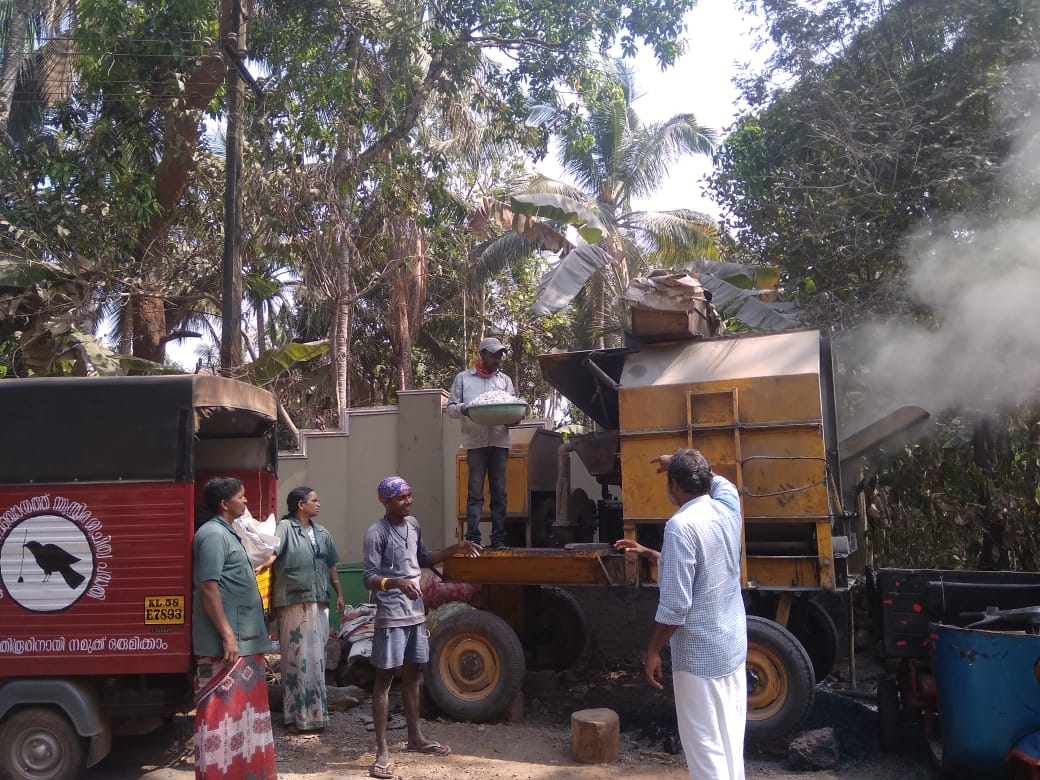
According to studies, there is no reduction in the quality of the roads. Melted plastics, in contrast, bind the aggregates of different sizes, thereby increasing the life of the road.
Renjith informs me that the usage of plastic reduces damage to the road by water—thereby increasing durability—and the strength of the road to take on more traffic.
Bitumen, also known as asphalt, is a black substance made from petrol, used for covering roads. Using less bitumen could potentially save on cost and resources. Bitumen concrete requires petroleum, which is becoming a scarce commodity. Renjith says, “Now, with plastic being replaced to a certain amount, almost 8 per cent of bitumen is being saved.”
How is this scaling up in Kerala?
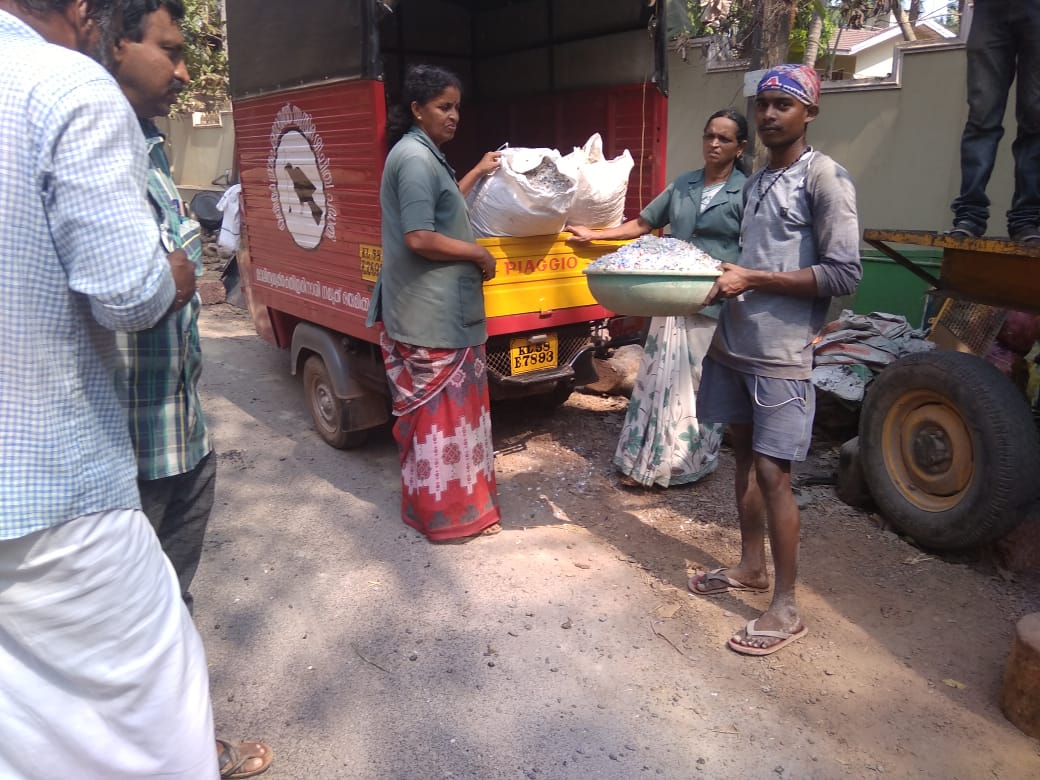
The initial success of using plastic waste to construct roads has enabled the Government of Kerala to embed this into a state-wide initiative as a part of its integrated waste management system.
The Suchitwa system is the the nodal waste management programme of Kerala. It has invested in the plastic shredding infrastructure as part of its Resource Recovery Facility, which also addresses recovery of all kinds of waste.
The shredded plastics stored in Resource Recovery Facilities (RRF) located at local bodies are being given to Clean Kerala Company (CKC) at Rs 15 per kg. These are supplied to the PWD department and local self governments at Rs 20/kg.
Renjith says, “The plastic shredding systems established across the state as part of RRF have shredded 9,700 tonnes of plastics used in blacktopping 246 kilometres of road. One prerequisite for higher efficiency in this process is the segregation of waste at source—it is critical to ensure a smooth recovery process.”
Kerala’s model of waste management
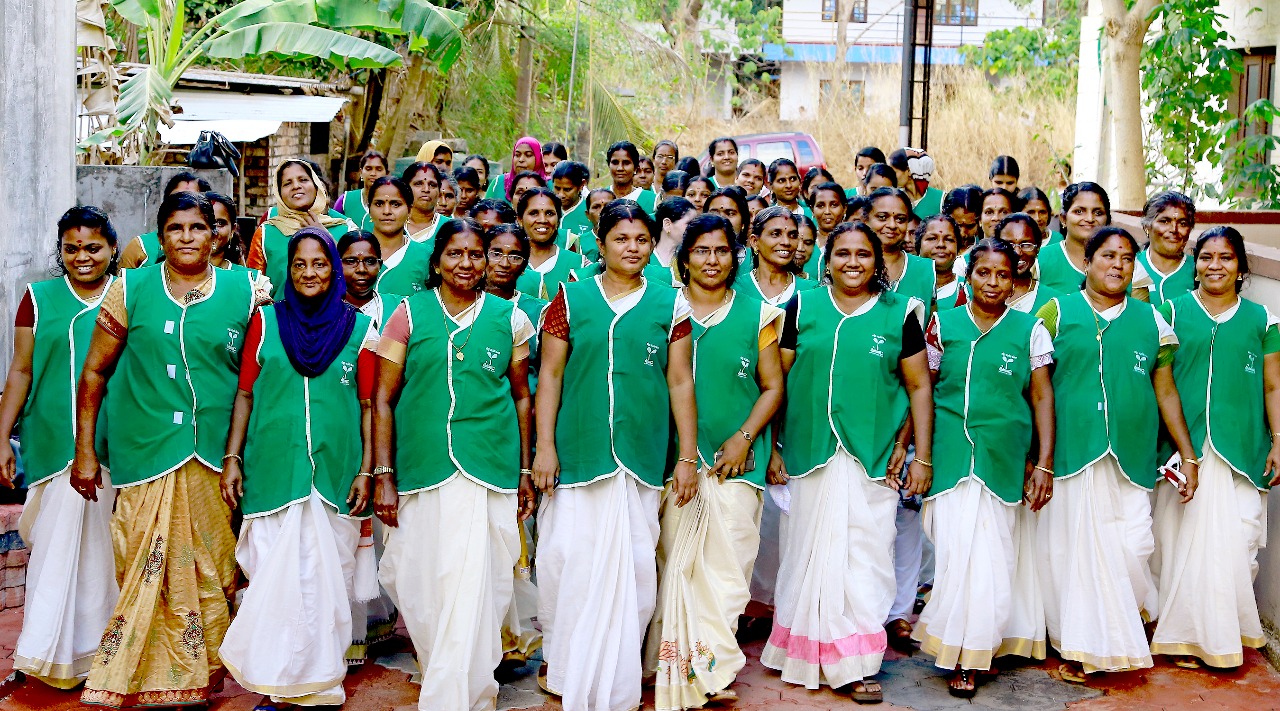
A small state with a high population density, Kerala faces serious land constraints for developing engineered landfills. The government recognised that the best way to address the issue is to follow the 3Rs of Reduce, Reuse and Recycle.
An analysis of the waste profile showed that almost 80 per cent of the waste consisted of wet, biodegradable waste, which is best handled at source—households, institutions and communities.
The campaign “My waste, My responsibilities”, initiated by the state government, brought people together and motivated them to handle waste at the local level. This is also practised across the state, with separate bins for biodegradable and recyclable waste.
Non-biodegradable waste is collected and transported to the Resource Recovery Facility, where it is sorted and forwarded for reuse and recycle, respectively. Plastic shredding machines are part of these facilities, which process plastic waste into road construction material.
You May Also Like: No More Old Newspapers, Waste Plastic for Food Packaging: FSSAI Issues New Rules
This win-win initiative solves two problems in one go—addressing the burgeoning waste problem, and providing indigenous, innovative construction materials for our infrastructure while employing thousands. This is an initiative, which we believe, should be emulated across the country.
(Edited by Shruti Singhal)
Images courtesy: Suchitwa Mission
Like this story? Or have something to share?
Write to us: [email protected]
Connect with us on Facebook and Twitter.

Similar Story
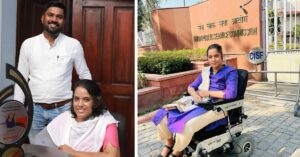
‘I Failed But Didn’t Stop’: Kerala Teacher Helps Aspirants with Disabilities Crack UPSC for Free
Once a UPSC aspirant, Kerala’s Jobin S Kottaram helps students and aspirants with motor disabilities crack the examination for free. He says his aim is to increase their representation in leadership roles.
Read more >
If you found our stories insightful, informative, or even just enjoyable, we invite you to consider making a voluntary payment to support the work we do at The Better India. Your contribution helps us continue producing quality content that educates, inspires, and drives positive change.
Choose one of the payment options below for your contribution-
By paying for the stories you value, you directly contribute to sustaining our efforts focused on making a difference in the world. Together, let's ensure that impactful stories continue to be told and shared, enriching lives and communities alike.
Thank you for your support. Here are some frequently asked questions you might find helpful to know why you are contributing?


This story made me
-
97
-
121
-
89
-
167












